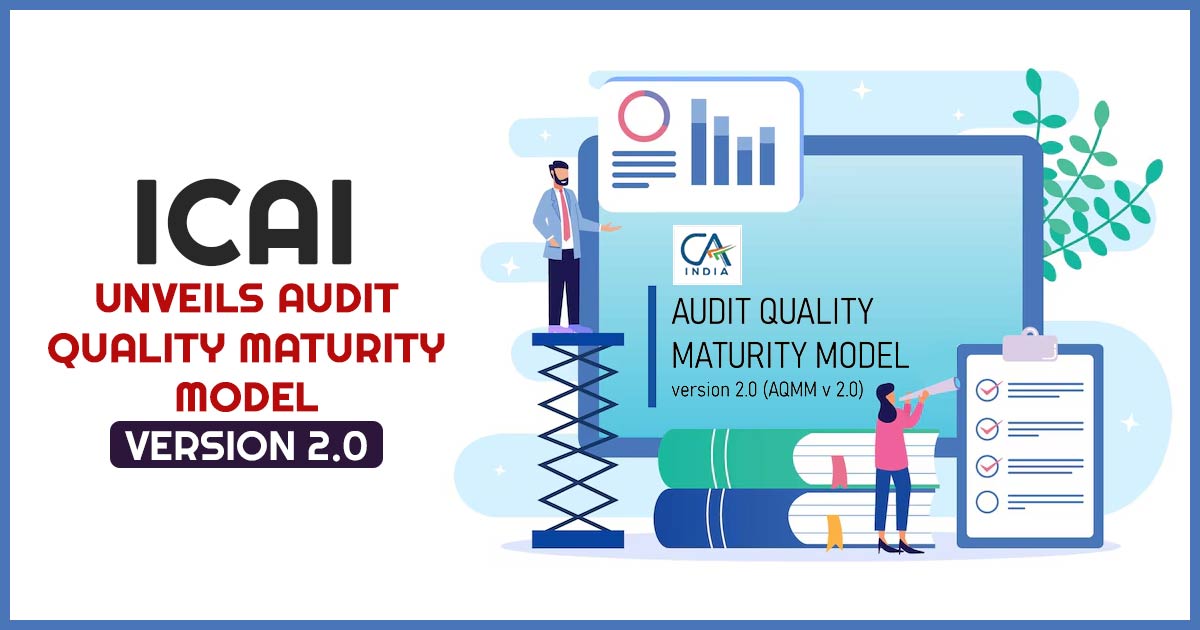
In the wake of the Information and Technological (ICT) Revolution and consequent higher Quality benchmarks and measurements, the Institute of Chartered Accountants of India (ICAI) has added a new concept of ‘Audit Quality Maturity Models’ in its learning module. The Audit Quality Maturity Model enables audit firms to assess their current state of audit maturity. The degree of a company’s maturity in this model is determined by the span of scores. Post acknowledging the response of the members to the exposure draft, the council of the ICAI has not approved the second version of AQMM. Read to learn the AQMM v 2.0 in detail.
ICAI Expands on AQMM and Requires Clear Disclosure of AQMM Levels
A significant expansion in the mandatory applicability of its Audit Quality Maturity Model (AQMM) version 2.0 has been declared by the Institute of Chartered Accountants of India (ICAI). The same move shall be executed in a step-by-step way starting from April 1, 2026.
AQMM at present is obligatory for the firms auditing listed entities, banks (excluding co-operative banks except multi-state co-operative banks), and insurance companies, apart from the firms conducting only branch audits. As per the amended structure, the following other categories shall come within its ambit-
From April 1, 2026, Firms auditing holding companies, subsidiaries, associates, or joint ventures of listed entities, specified banks, and insurance companies. At present, the Audit Quality Maturity Model is mandatory for Firms auditing the following entities, excluding the Firms conducting only branch audit”
Also comprised are firms undertaking regulatory audits of unlisted public companies with either:
- A Listed Entity
- Banks other than Co-Operative banks (Except multi-state Co-operative banks)
- Insurance Companies
From April 1, 2026, Firms auditing holding companies, subsidiaries, associates, or joint ventures of listed entities, specified banks, and insurance companies. Also comprised are firms undertaking regulatory audits of unlisted public companies with either:
- Paid-up capital of ₹500 crore or more,
- Annual turnover of ₹1,000 crore or more, or
- Aggregate outstanding loans, debentures, and deposits of ₹500 crore or more as of the preceding March 31.
From April 1, 2027, Firms undertaking regulatory audits of the entities that have raised more than Rs 50 crore from the public, banks, or financial institutions during the review period, as well as public interest entities, including particular trusts.
Now, the ICAI publicly reveals on its website the AQMM levels of firms, arranged level-wise alongside the date validity of their Peer Review Certificate. The AQMM level shall be printed directly on Peer Review Certificates issued to firms.
The expansion of the ICAI specifies the devotion to rectification of audit quality, transparency, and public trust in the profession by ensuring higher accountability and control standards for statutory auditors.
You can download version 2.0 of the Audit Quality Maturity Model here: https://resource.cdn.icai.org/81585caq65805.pdf
Read the Latest official Announcement by ICAI: https://resource.cdn.icai.org/87517caq-aps1943.pdf







